https://ebookgate.com/product/riba-book-ofbritish-housing-2nd-edition-ian-colquhoun/ Download more ebook from https://ebookgate.com
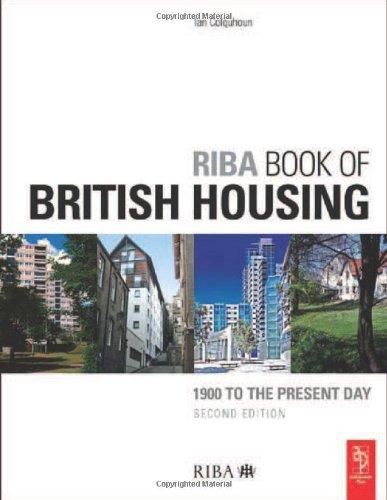
More products digital (pdf, epub, mobi) instant download maybe you interests ...
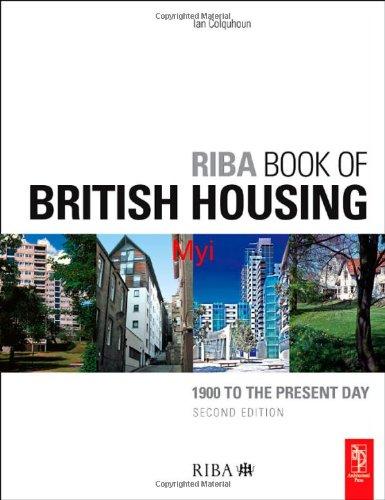
RIBA Book of British Housing Second Edition 1900 to the present day Ian Colquhoun
https://ebookgate.com/product/riba-book-of-british-housingsecond-edition-1900-to-the-present-day-ian-colquhoun/
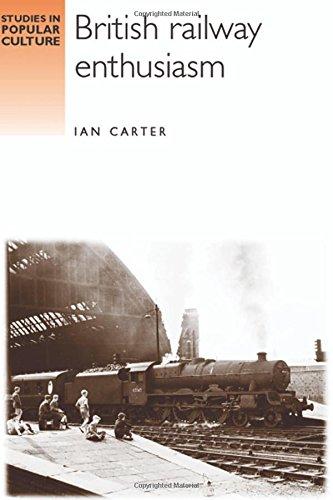
British railway enthusiasm 1st Edition Ian Carter
https://ebookgate.com/product/british-railway-enthusiasm-1stedition-ian-carter/
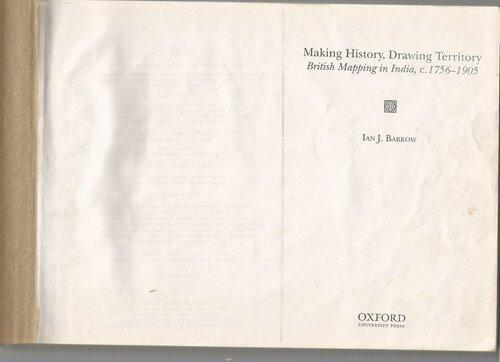
Making history drawing territory British mapping in India c 1756 1905 2nd impression. Edition Ian J. Barrow
https://ebookgate.com/product/making-history-drawing-territorybritish-mapping-in-india-c-1756-1905-2nd-impression-edition-ianj-barrow/

Keren 3 4 Indonesian Course Book Ian J. White
https://ebookgate.com/product/keren-3-4-indonesian-course-bookian-j-white/

Fundamentals of Clinical Psychopharmacology 2nd Edition
Ian M. Anderson
https://ebookgate.com/product/fundamentals-of-clinicalpsychopharmacology-2nd-edition-ian-m-anderson/

Cambridge IGCSE Complete Mathematics Extended Student Book Sixth Edition Ian Bettison
https://ebookgate.com/product/cambridge-igcse-completemathematics-extended-student-book-sixth-edition-ian-bettison/
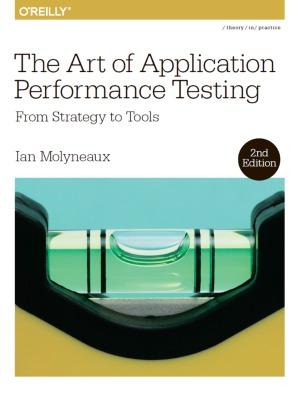
The
Art of Application Performance Testing 2nd Edition
Ian Molyneaux
https://ebookgate.com/product/the-art-of-application-performancetesting-2nd-edition-ian-molyneaux/

Housing and Social Transition in Japan Housing and Society Series 1st Edition Y Hirayama
https://ebookgate.com/product/housing-and-social-transition-injapan-housing-and-society-series-1st-edition-y-hirayama/
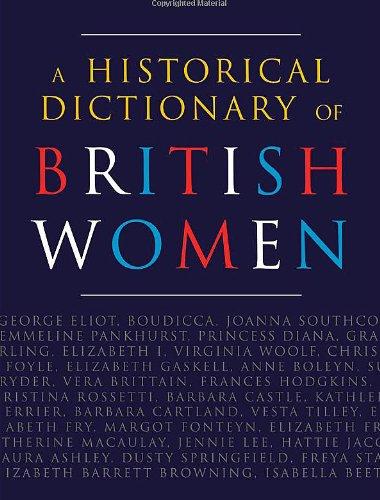
A
Historical Dictionary of British Women 2nd Edition
Cathy Hartley
https://ebookgate.com/product/a-historical-dictionary-of-britishwomen-2nd-edition-cathy-hartley/
Another random document with no related content on Scribd:
‘There are great events impending just now. I pray God to direct them for our good.
‘I am, dear sir,
‘Your sincere humble servant, ‘E. BRISTOL. ’
From Lord Bristol (Bishop of Derry), objections to my proposal for selling all lambs at Harrington Fair.
‘Ratisbon: Jan. 17, 1793.
‘My dear Arthur,—Why will you make me a request with which I cannot in prudence comply? And why must I say Noto a man whom I wish only to answer with Yes? You are as great a quack in farming as I once was in politics, and therefore, knowing the force of the term, I must be on my guard against you.
‘Noreform, dear Arthur, at this time of day. Ipswich has an old prescriptive right to our lambs—we have sold them well at that market; buyers are accustomed to it; have their connections there of every kind; may very possibly not come to Horningheath for many years. Let the buyers advertise that they wish to change the market, and I, though a great heretic against most establishments, will be none against them. Adieu! magnanimous Arthur. Reserve your prowess for a greater object than distressing poor Ipswich by bereaving it of its ancient patrimony.
‘We have a sheep fair here, too, at Ratisbon, but of old horned rams, and not of young Suffolk lambs.
‘Yours cordially,
‘BRISTOL. ’
From Thomas Law, Esq., who resided long in Bengal, on the application of the Corn Laws.
‘Weymouth Street: Jan. 5, 1793.
‘Sir,—I have fortunately obtained the perusal of your “Travels,” and the sentiments conveyed therein so totally coincide with my
observations of eighteen years upon the extensive continent of Asia, that, upon your arrival in town, I shall be happy to convey to you any information in my power respecting the agriculture of Bengal, Behar, and Benares.
‘When a member of a grain committee during a drought, I pursued your system, which coincides with that of Adam Smith, viz.: All our object was to prevent impediments to the free transport of corn, being convinced that it would be removed from an abundant province to one which was less productive, and, like water, find its level, and that the interest of merchants would convey it from cheap places to dear ones, and thus promote the general good. I could impart to you many fatal instances of the intervention of powers by fixing the price and by forcing corn to market.
‘I can show you the thanks of a resident who presided in the capital of an extensive district threatened with a famine, and who wrote to me asking my opinion upon the following propositions: First, “Shall I raise subscriptions to supply the poor with rice at this crisis?” Answer, “You will thereby not only encourage a concourse to your city of persons whose expectations will be deceived, as their numbers will exceed the amount of your gratuities, and you will thereby destroy many; but you will enhance the price in the city.” Secondly, “Shall I compel the granaries to be opened, and fix a moderate price?” Answer, “By no means. You will thereby deter the merchants from bringing grain to market, and will thereby starve your inhabitants. Your power can only extend to a certain limit, and within that the merchant will not enter. If supplies are coming to you, those who have grain for sale will have advice of it, and hurry their grain to market; but if you compel them, you will stop all imports by such forcible interference. Have you calculated at what price the merchant buys at a distance, at what expense he brings it, &c.? In short, you have the choice of the alternative— whether for a day or two you will submit to want, and then be relieved by the exertions of those who always hasten to a good market; or whether you will gain popularity for a day or two by a
compulsory expenditure of the quantity within your grasp, and then fall a martyr to an exasperated starving people.” He adopted the first, and thanked me in the strongest terms.
‘About that time, when Government intended to purchase grain to supply certain places, I protested against it, because those places would entirely rely upon Government management; for no merchant would convey to places where Government by a sudden import might overflow the market—if London were to be supplied with every want by a contract or monopoly, the effect is easily foreseen.
‘In respect to a fixed land tax, I can show you some very satisfactory papers upon the subject; as I had to contend against some very able advocates for periodical equalisation, and at length have obtained a fixed land tax for ever. In Asia we have metayers, as in France; we have surveyors of the crop. In short, to a gentleman of your philosophic and agricultural turn I may prove a welcome referee. To the many pertinent questions you will put, you will, no doubt, find many deficient replies, for I am conscious of having omitted much. Unluckily I had never seen your able productions, and had too often to find the truth by the experience of error.
‘Many serious evils may be prevented if a person of your influence could have conveyed to Asia your sentiments upon taxation, the corn, trade, &c., for the perusal of the several servants entrusted with the charge of vast districts with numerous industrious subjects. If Necker committed such palpable mistakes after so much experience, must not young men in the company’s service be subject to fatal errors where the instruction of books is not always to be attained, or the advice of the well-informed, as in Europe?
‘I remain, with respect, sir,
‘Your most obedient humble servant, ‘THOMAS LAW. ’
From the Right Hon. Edmund Burke, highly praising the ‘Example of France’:—
Mr. Burke thanks Mr. Young for his most able, useful and reasonable pamphlet. He has not seen anything written in this controversy which stands better bottomed upon practical principle, or is more likely to produce an effect on the popular mind. It is, indeed, incomparably well done. We are all very much obliged to Mr. Young, and think the Committee ought to circulate his book.
‘Duke Street, St. James’s: March 5, 1793.’
From Dr. Burney, on my ‘Example of France,’ &c.:—
‘Chelsea College: May 12, 1793.
‘My dear Friend,—I cannot let Mrs. Young return without sending you my best thanks for the second edition of your excellent pamphlet. Indeed, if I were singular in approbation of it, you might think me a cleverer fellow than I shall seem among the crowd of your admirers. What is a single name in a list fifty yards long? And if I were to tell you what numbers of first-rate judges have spoke well of your performance, I should want more room than Mr. Sheridan’s friends at Glasgow. I shall only just specify those who would be at the head of a complete list, if I had time to make one: Mr. Burke, Lord Orford, who, on my asking him if he had seen your pamphlet, pointed to it, “There it is; I read nothing else;” Mrs. Montagu the same; a large party of bluestockings at Lady Hesketh’s all agreed that your book and Hannah More’s “Chip”[155] were the best on the subject. When I made Mrs. Crewe read the first edition, she wrote me word that she had perused it with great attention, and that she found it contained stubborn facts, to each of which she should say with the grave-digger, “Answer me that and unyoke.” Last week, in a note she sent me from Hampstead, she says: "Mr. Arthur Young’s pamphlet makes a great noise, and, I think, I never knew any book take more; it is reprinted, you know, with additions." In the communication of the latter information she got the start of me; the second edition could not have been out three days but you
are meditating a third. I like your additions to the second much, particularly what concerns the reform of Parliament.
‘I wish you could overhaul Grey’s speech as well as Charles Fox’s on that subject, and in an appendix expose the weakness and inconsistence of both. Only observe how both confess that there was danger to our constitution “from opinions favourable to the principles and measures of France,” after so stubbornly and pertinaciously denying in Parliament the existence of any such danger; challenging Government to prove it, and saying that “the Proclamation, call of Parliament, Alien and Traitorous Correspondence Bills, were mere Ministerial juggles” to increase influence, diminish liberty, and encourage excess of loyalty. “But,” says Mr. G. “that dangermust now be much lessened, as all approbation of those principles, or imitation of that example, is now improbable, totally discredited, and removed from all political speculation and practice.” What, then, is all the defence of France and Frenchmen by the Opposition? And why is every measure condemned in Parliament that tends to put an end to their anarchy and ambition? Why is war against them so censured? Why is it always called the war of kings and despots? Why is the Minister so importuned to make peace with regicides and assassins, determined to force, if possible, every nation upon earth to adopt their measures? Mr. Grey repeats in his speech, “All dread of the example is completely removed, and that none could suppose him, or any other party in this country, favourable to that example.” What is this but open falsehood? Mr. Fox allows that “there was a party whose wild theories certainly aimed at an impracticable perfection, that could only have been pursued by means subversive of every part of our constitution.” Yet there never was any danger! Mr. G. says, in express terms, “that his motion extended to an alteration in the present government of the country.” But he had no specific plan ready of his own, or that he chose to father. But as all the petitions he and Mr. Sheridan brought in for a reform demandednothing less than universal suffrage, and as these gentlemen either drew up or approved the contents of these petitions, we may easily judge
what was the general plan of our Jacobins, if they could have had the tinkering of the constitution.
‘Grey seems to me a silly fellow, with a greater wish than abilities to do mischief. Charles Fox’s speech is more a panegyric on the constitution than on his friend’s motion. When every man is left to himself to reform an old constitution or make a new one, no two will be found of a mind on the subject. Sherry’s speech was nothing to the purpose. There was no attempt of the phalanx which I so much dreaded, as the doubling our tiersétat. Thank God, their great gun has flashed in the pan! The mountain has laboured in vain. You know I hope that the gang in Parliament, like Egalité’s creatures in the “Convention,” is called the Mountain. And it has been called by a punster of the party MountSigh-on. I fear the war will be long and bloody; and how it will end who can tell? Nothing but a vigorous prosecution of the war can save the whole civilised globe from destruction. After disdaining in the House the principles which they had suggested and encouraged out of it, I should not wonder if the Scotch and English petitioners for reform on the basis of universal suffrage should mob and September their friends the demagogues whenever they can catch them. I don’t love mischief, but I do cordially wish something of that kind were to happen.
‘Adieu.
‘Ever yours sincerely,
‘CHARLES BURNEY
. ’
From Dr. Symonds, high encomiums of my ‘Example,’ &c.
‘Prince of Wales Coffee House: April 8, 1793.
‘Traveller Coxe[156] desired me to tell you how charmed he was with your pamphlet; nay, he had begun to write five or six lines to you, but thought afterwards it was taking too great a liberty. One thing, however, he wishes you to expunge in your next edition, viz.: a reflection on Sunday schools as not being founded
on truth. You must not be surprised at this, for he is a zealous patron of them, and has explained the Catechism in print for that purpose. Wherever I go I hear your “Example of France” spoken of in the highest terms as to the matter.
‘Everyone agrees that no political writer whatever has set the representation of property in so clear and just a light. Bishop Douglas, who has written many good pamphlets, and is therefore the best judge, makes no scruple to declare frequently that you deserve from Government a most ample reward; but we both wish, as well as others, for your sake, that the second edition may be printed more correctly.
‘You should come to town and be presented, or, at least, take an opportunity to walk on the Terrace at Windsor, where you would not fail of being marked out. Bishop Watson’s appendix has rendered him rectus in curia. A few days ago he was at Court, talking with Lord Dartmouth, who mentioned the word philosophy, which the King overhearing, came to the bishop, and said, “I have read the best sort of philosophy, my lord, in your sermon and appendix, which has wonderfully pleased me.” The bishop, of course, made his bow, and then the King went on, “You write so concisely and so forcibly, that everyone must be convinced by your arguments;” on which the bishop replied, “I like, Sir, to step forward in a moment of danger.” The King rejoined, “You have shown a good spirit, and it could not be done in a better manner.” Should the last volume of "Clarendon’s Letters" come in your way, I would advise you to read the famous one from Sir John Colepeper to Secretary Nicholas; which is always esteemed as a wonderful instance of political sagacity, as it foretold that the Restoration would be accomplished by Monk! But I think there is another part of this letter which shows equal sagacity, viz.: his desiring that Charles would not send over any foreign troops into England, as this measure would not fail of uniting the English against him; whereas, if they were left to themselves, he would always have a strong party, and must sooner or later be restored. I am fully convinced of the truth of this reasoning; and of what use is
history unless it be considered as a school for modern politicians?
‘Why did you not let me know whether your second edition had gone to the press or not? Before I left Cambridge I saw a gentleman who told me that Sir William Scott had mentioned in a letter to one of his friends there that it was by far the most convincing and best pamphlet that had been published.
‘All I could wish is that you had not stigmatised all reformers with the name of enemies to the state; or, at least, you intimated it. I was always myself an enemy to reform in Parliament, and continue to be so; yet I know some warm advocates for it, who mean as well to the benefit of this country as you can possibly do.
‘Dr. Hardy and Sir Henry Moncrief (a Scotch clergyman) are come to solicit a Bill for the enlarging of the stipends of the Scotch clergy. They do not apprehend much difficulty in carrying it through the Houses, though the addition must be supplied out of the tithes in the hands of lay proprietors. Hardy is Professor of Ecclesiastical History at Edinburgh—a most sensible man, with great liberality of mind. Sir Henry is a polished man, and likewise a man of business. I hope to see them both at St. Edmund’s Hill, and you must meet them. You should get Hardy’s pamphlet, the “Patriot,” published in Scotland on the present emergency; there are in it many excellent things.
‘You seem in your letter to be still apprehensive of some plots and insurrections.
‘Plot! Plots! was the catch-word in King Charles II.’s time. Sir H. Moncrief and Dr. Hardy laughed at Dundas’s account of the political riots in Scotland. They absolutely denied the existence of them—considered them as political; and when you read Hardy’s pamphlet, you will see that he would not have failed setting them forth if they had deserved any consideration.
‘Adieu! I should not have come to London had it not been on account of my ecclesiastical foundling.
‘JOHN SYMONDS. ’
